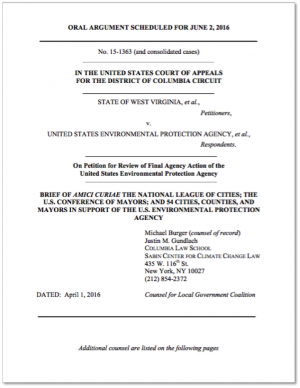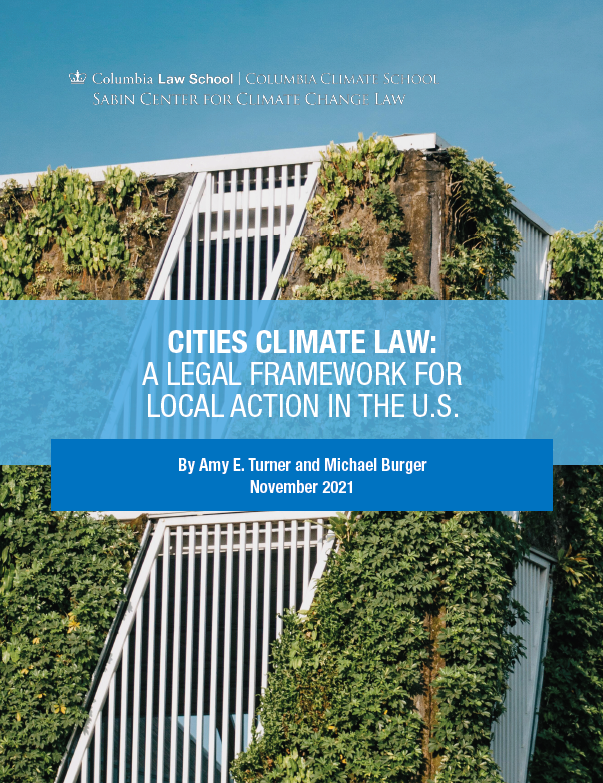
On February 9, 2023, ClientEarth filed a derivative action against the Board of Directors of Shell at the High Court of Justice in England and Wales (ClientEarth v. Shell’s Board of Directors). The lawsuit alleges that the Board has failed to manage material and foreseeable climate risks, therefore breaching UK company law. The case, deemed the first of its kind in corporate climate litigation, seeks to hold shareholders personally liable for failing to adequately manage the risks associated with the climate emergency. This blog post provides an overview of the case in the context of corporate climate litigation, specifically other claims brought against Shell.
The claim
While plaintiffs in a direct action seek to recover damages from the company (or other named defendants), plaintiffs in a derivative suit address governance behaviors that may leave the company vulnerable to long-term financial damage. In the derivative action, ClientEarth, which holds a token shareholding in Shell, is backed by a group of institutional investors holding approximately 12 million shares in the company and managing assets worth more than £450 billion. The strategy adopted in the UK provides an innovative approach to corporate climate litigation. It represents the first time shareholders have brought a claim on behalf of the corporation to protect its interests and long-term shareholder value. As is typical in derivative actions, ClientEarth, acting as a shareholder, notified the Board of its claim in a pre-action letter in March 2022 before filing the suit.
The lawsuit alleges that the 11 directors of Shell have breached their legal duties under the UK Companies Act by failing to implement an energy transition strategy that aligns with the Paris Agreement. Shell claims that its Energy Transition Strategy, which includes a net zero emissions plan with a 2050 target, is consistent with the 1.5°C temperature goal of the Paris Agreement. However, according to Climate Action 100+, the strategy excludes short- to medium-term targets to reduce scope 3 emissions, which account for over 90% of the company’s overall emissions.
The case follows a landmark 2021 decision from the Netherlands
The ClientEarth case follows the groundbreaking decision by the Hague District Court in May 2021, which ordered Shell to reduce emissions from its own operations and the end-use of its products by 45% below 2019 levels by 2030 (Milieudefensie et al. v. Royal Dutch Shell plc.). The Court found that stemming from the standard duty of care under the Dutch Civil Code, Shell had an obligation to prevent dangerous climate change through its policies, emissions, consequences of its emissions, and its human rights and international and regional legal obligations. The Court concluded that the standard of care included the need for companies to take responsibility for end use emissions, especially “where these emissions form the majority of a company’s CO2 emissions, as is the case for companies that produce and sell fossil fuels.”
As previously reported on this blog, the 2021 decision “represents a new understanding of corporate liability in regards to the risk of harm caused by their contribution to climate change.” Although the decision is under appeal, the Court made it provisionally enforceable, meaning Shell will be required to meet its reduction obligations even as the case is appealed. However, NGOs have found that Shell has failed to comply with the court’s mandate fully. In April 2022, Milieudefensie sent a letter to Shell’s Board of Directors calling for urgent action to comply with the Dutch verdict and warning for personal liability risks towards third parties resulting from a failure to act. After the Dutch decision, Shell announced it would move its headquarters to the UK, in an effort to simplify its share structure that also shifted its exposure to this litigation into UK court jurisdiction.
ClientEarth’s claim
Under UK company law, a company’s board of directors has a legal obligation to promote the company’s success and act with reasonable care, skill, and diligence. In the derivative suit, ClientEarth asserts that the Board needs to fulfill these requirements by properly managing climate risks. In addition, ClientEarth argues that the Board’s current emissions reduction strategy, projected to result in a 5% reduction in net emissions by 2030, does not comply with the Dutch Court’s order to reduce emissions by 45% by the end of the decade. As such, ClientEarth has requested the High Court to grant an order requiring the Board to adopt a strategy to manage climate risk in compliance with the Companies Act and the Dutch Court judgment.
U.S. Context
The suit was filed only a week after a complaint was submitted to the U.S. Securities and Exchange Commission (“SEC”) accusing Shell of greenwashing with respect to its renewables investment. That complaint, submitted by the environmental NGO Global Witness to the SEC’s Division of Enforcement on February 1, 2023, requests an investigation into Shell’s “Renewables and Energy Solutions” (“RES”) accounting and reporting, claiming that a significant portion of Shell’s RES spending appears to be funding natural gas, a fossil fuel that does not qualify as a renewable. The complaint also highlights that Shell stated in its most recent annual report that it spent 12% of its capital on RES projects, despite an analysis suggesting the company only spent 1.5% on developing renewables such as wind and solar energy. New Global Witness claims that investors are misled by Shell’s statements promoting its RES segment, which obscure the company’s limited financial commitment to renewable energy. The SEC’s Climate and ESG Task Force is increasingly undertaking enforcement actions related to greenwashing, though it will take time before any action in response to this complaint is known.
No derivative action analogous to ClientEarth’s suit has yet been attempted in the United States. But under Delaware law, where almost 1.5 million companies are headquartered, officers and directors of high-emitting companies without substantive plans regarding a low-carbon transition might face similar litigation in the future. As elaborated in a recent report by the Commonwealth Climate and Law Initiative, the growing evidence that climate change and the energy transition present clear financial risks for corporations means that a company’s board members may have fiduciary obligations to manage climate risk. Under Delaware law, a company’s officers and directors owe the corporation a duty of loyalty and a duty of care. Underpinning both obligations is a responsibility that officers and directors act in good faith. As climate-related financial risk becomes a material risk for corporations, company directors could become liable for their failures to manage that risk, in the same way that they can be held liable for failure to manage other material risks to the company.
While a derivative case alleging breach based on failure to take sufficient action to manage these financial risks of climate change would be novel, there have been actions in the U.S. claiming a breach of fiduciary duty based on allegedly misleading statements about exposure to climate change-related risks – for example, suits against Exxon, including derivative action.
These lawsuits highlight the obstacles to a successful derivative action in the U.S. As a threshold matter, derivative suits involve preliminary procedural requirements, including a “books and records” request, and a request that the company’s board investigate the allegations. Requests to inspect the company’s books and records are permitted by the Delaware Supreme Court as long as the shareholder provides a “credible basis” for wrongdoing, which does carry some risk for the company through exposure to investor scrutiny and reputational harm. However, it is rare for officers and directors to be found liable for a breach of fiduciary duties. A number of defenses exist, including that a company may seek to dismiss the suit if independent directors have determined in good faith after a reasonable inquiry that the shareholder derivative lawsuit is not in the company’s best interest.
Conclusion
The ClientEarth case shows how civil society organizations are engaging in a wide range of legal arguments to adjust corporate behavior to the global need to mitigate greenhouse gas emissions and adjust their overall policies and investments to the needs of decarbonization. If successful, seeking the personal liability of directors could lead to a new wave of corporate climate litigation cases, which not only engages corporations but also those responsible for making high level decisions about managing climate risk.






